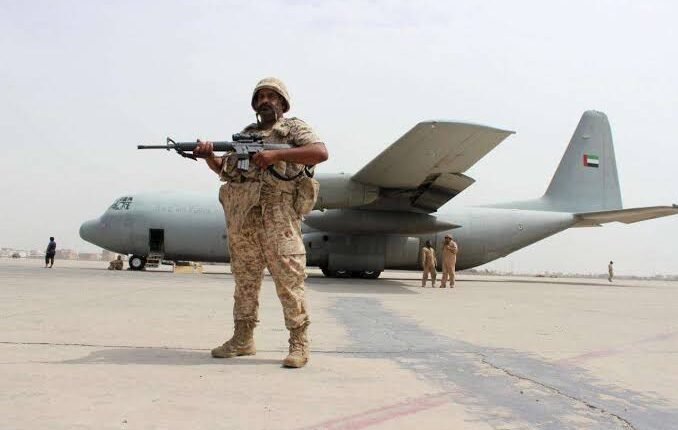Desert Wolves: Colombian Investigative Report on UAE and Rapid Support Forces Mercenaries

Sudanhorizon – Follow-ups
On February 28, 2025, “La Silla Vacia”newspaper , an independent Colombian news platform concerned with in-depth reporting and analysis of political and social issues, published an investigative report titled: *“Desert Wolves: The Way Colombian Mercenaries Operate in Sudan”*
The investigation highlights the pivotal role played by the United Arab Emirates in supplying Colombian mercenaries to the Rapid Support Forces militia in Sudan through a UAE company *“GSSG”
based in Dubai. This company works in partnership with a Colombian company called *“A4SI”* to recruit retired Colombian fighters to fight alongside the “Rapid Support Forces Militia” in the Sudanese civil war. This operation is managed from Dubai by retired Colombian Colonel Alvaro Quijano, who resides there.
According to the article, the UAE has become a major logistical, organizational and financial center for the operations of these mercenaries. After the involvement of Colombian mercenaries in Sudan was exposed, the mercenaries’ travel routes to Sudan has been chantheseThey are now sent to several countries after arriving to the UAE before being assembled in Sudan to avoid drawing attention.
Mechanism of Mercenary recruitment:
The investigation shows that the process of recruiting these retired soldiers is carried out in an organized and well planned method through cooperation between the two aforementioned companies. The operation begins in Colombia, where “A4SI” targets retired soldiers from the Colombian army, who are often people with extensive military experience but undergo difficult economic conditions upon rservice.from the Colombian army active service. They are contacted through informal networks or local intermediaries, and are offered work as an opportunity to improve their financial lot. Then, a confidentiality clause is signed with the Global Security Services Group, a UAE company sponsored by the government. But the contract being signed is to provide security services in the UAE’s oil infrastructure in the Middle East or Africa.
After signing, they are transported to Dubai, where GSSG takes over the final coordination of the operation, including training and equipping them for combat. From there, they are sent to Sudan via variable routes to avoid international detection, such as passing through Erbil in Iraq, Benghazi in northern Libya or via a route that includes going to Madrid, then leaving for Ethiopia. From there, they pass through a major port in Somaliland called Bosaso, then fly to N’Djamena, the capital of Chad, where they are received by the Rapid Support Forces militia and then assembled in the city of Nyala, North Darfur state before being deployed to the battlefronts.
Two retired Colombian officers oversee the field operations, to ensure military discipline and the precise execution of missions. They are the first battalion commander: Ivan Dario Castillo Rodriguez and the second is John Jairo Mondol Duque, the latter of whom, according to the testimony of the returning soldiers, personally leads the operations in Fashir. This operation reflects a complex network that combines Colombian military expertise with UAE logistical and financial support, targeting a specific category of soldiers who are lured by the financial reward despite the enormous risks.
The report details the material benefits these soldiers receive as a primary motivation for their participation in the war. Each soldier receives a monthly salary of between $2,500 and $3,000, a large sum compared to what they might earn in Colombia after retirement. In addition, they sign six-month contracts, and are promised an additional bonus of around $10,000 upon the end of the contract, provided they survive and complete the mission in Darfur. These financial offers are very tempting, especially for those who are facing financial challenges, but they come at a price. The mercenaries face harsh conditions, such as attacks by warplanes and drones, and heavy human losses among the mercenaries were recorded in October 2024, in addition to serious injuries.
One soldier who returned to Colombia after fighting in Darfur reported that Russian mercenaries from Wagner, a group of mercenaries who were also allies of Russian President Vladimir Putin, were fighting alongside the militia in Darfur.
Shortlink: https://sudanhorizon.com/?p=4499

